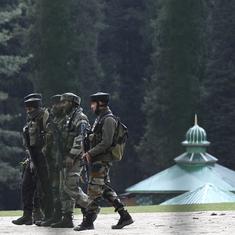Rail ministers usually use their budget speech as an opportunity to make this case, especially when most coverage of the railways tends to remind people that the public sector giant is bloated and hemorrhaging money.
Ministers have sought to insist that the railways are already crucial to India. They are a “network of veins that pump life-giving blood” into Indian economy (Suresh Prabhu, 2015), the “structure and soul” of the economy (Sadananda Gowda, 2014), “a vital organisation playing an unparalleled role in integrating the nation” (Pawan Kumar Bansal, 2014) and an “an artery of this pulsating nation.” (Mamata Banerjee, 2011).
Those flowery arguments all make the case that the Indian Railways cannot be done without, so we must improve them. Prabhu, a minister brought in because of his known technocratic impulses, sought to make a different argument as well, one that was much more forward looking.
Madam Speaker, we need to invest in Indian Railways also because it is necessary for our ecological sustenance. The annual consumption of fuel by the Railways is just about 7% of the annual fuel consumption by the road sector. The energy consumption is about 75%- 90% less for freight traffic when compared to road. The carbon dioxide emission is about 80% less than road. Investment in Indian Railways is an investment in our future. It is an investment in our sustainability. It is an investment for posterity
This isn't necessarily novel stuff. Rail ministers have said for years that the Indian Railways are environmentally friendly and year after year, the government makes promises that it will attempt to make our trains "greener." But Prabhu, who took the usual economic route, also insisted that improving the Indian Railways are important for us ecologically.
He claimed that carbon dioxide emissions are less, energy consumption is less and annual consumption of fuel is a lot less than sending cargo or people by road. Some of this is only true because the Indian Railways are not considered competitive with rail -- they don't go everywhere and their potential delays are tremendously problematic. But it's true, short of improving India's waterways, rail offers much more energy efficient travel.
In addition to making this argument, though, Prabhu also seems to be making an effort to make the railways more environmentally friendly. He said that Railways intends to set up waste-to-energy conversion plants near coaching terminals, something that previous ministers have said before. But he also announced the setting up of an Environment Directorate to give increased focus on making the railways more green.
Prabhu spoke of adopting energy conservation measures, producing power through a bidding process that would lead to energy bill savings, solar power plants to provide energy to trains and Compressed Natural Gas-powered electric trains.
"The gains to the economy will be immense: better services, improved connectivity for all citizens including the poorer segments of our society, lower costs and improved competitiveness. Investment in the Railways will have a large multiplier effect on the rest of the economy and will create more jobs in the economy for the poor. Investment in Indian Railways is also necessary for environmental sustainability and well being of future generations," Prabhu said.










